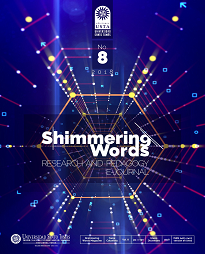Los cuidados básicos de un joven cuidador ante un padre sobreviviente de un accidente cerebro vascular
Contenido principal del artículo
Resumen
El cuidador cercano de una persona sobreviviente de un accidente cerebro vascular (ACV) puede ser un joven adulto de 18 a 25 años, lo hace por diversas razones económicas, sociales y culturales. Los cuidados brindados pueden afectar la vida del cuidador. En esta revisión de la literatura, se ha efectuado un Estado del Arte de los cuidados a tener en consideración concernientes a los jóvenes cuidadores o mayores emancipados quienes se ocupan de un padre que sobrevive luego de un ACV. Una tabla de análisis de resultados fue elaborada con el objetivo de resaltar las diversas necesidades anteriormente mencionadas. Luego del análisis de los resultados, muchas necesidades deben ser tomadas en consideración para poder favorecer el bienestar de los cuidadores. El ergo-terapeuta, el equipo pluridisciplinario y los servicios de ayuda pueden poner en Shimmering Words: research and Pedagogy E-Journal. ISSN (versión en línea) 2463-0403. Enero – Diciembre / 2018. Volumen 8. 61práctica estas recomendaciones para realizar un cambio durable para los cuidadores y sus familias, ofreciéndoles el apoyo que requieren.
Detalles del artículo
Cómo citar
Céline, B. (2019). Los cuidados básicos de un joven cuidador ante un padre sobreviviente de un accidente cerebro vascular. Shimmering Words: Research and Pedagogy E-Journal, 8, 59-101. Recuperado a partir de http://revistas.ustatunja.edu.co/index.php/shimmering/article/view/1798
Sección
Artículos-8
Citas
Baus R., Dysart-Gale D., Haven P., (2005), Caregiving and social support: a twenty-first century challenge for college students, in Communication Quarterly, vol. 53, n°2, Mai, pp. 125-142
ANAES Service des recommandations professionnelles, (2003), Retour au domicile des patients adultes atteints d'accident vasculaire cérébral, consulté le 12-10-2016 sur http://www.hassante.fr/portail/upload/docs/application/pdf/AVC_Retour_Rec|os.pdf
Daly M., Lewis J., (2000), The concept of social care and the analysis of contemporary welfare states, in The British Journal of Sociology, vol. 51, Juin, pp. 281-298
Arnett J., (2000), Emerging Adulthood: A Theory of Development from the Late Teens through the Twenties, in American Psychologist, vol. 55, Mai, pp. 469-480
Pakenham K., Bursnall S., Chiu J., Cannon T., Okochi M., (2006) The Psychosocial Impact of Caregiving on Young People Who Have a Parent with an Illness or Disability: Comparisons between Young Caregivers and Non-caregivers, in Rehabilitation Psychology, vol 51, n°2, Mai, pp. 113– 126.
Becker F., Becker S., (2008), Young Adult Carers in the UK: Experiences, Needs and Services for Carers Aged 16–24, London, The Princess Royal Trust for Carers, consulté le 15-11-2016 sur http://static.carers.org/files/yac20report-final-241008-3787.pdf
OMS., (2016), Accident vasculaire cérébral, consulté le 18-11-2016 sur http://www.who.int/topics/cerebrovascular_accident/fr/
INSERM., (2013), Accident vasculaire cérébral, Paris, consulté le 18-11-2016 sur https://www.inserm.fr/layout/set/print/thematiques/physiopathologie- metabolisme-nutrition/dossiers-d-information/avc-
Laurence M., Kinn S., (2013), Needs, priorities, and desired rehabilitation outcomes of family members of young adults who have had a stroke: findings from a phenomenological study, in Disabil rehabil, vol. 7, Août, pp. 586-595
ANAES Service des recommandations professionnelles, (2003), Retour au domicile des patients adultes atteints d'accident vasculaire cérébral, consulté le 12-10-2016 sur http://www.hassante.fr/portail/upload/docs/application/pdf/AVC_Retour_Rec|os.pdf
Daly M., Lewis J., (2000), The concept of social care and the analysis of contemporary welfare states, in The British Journal of Sociology, vol. 51, Juin, pp. 281-298
Arnett J., (2000), Emerging Adulthood: A Theory of Development from the Late Teens through the Twenties, in American Psychologist, vol. 55, Mai, pp. 469-480
Pakenham K., Bursnall S., Chiu J., Cannon T., Okochi M., (2006) The Psychosocial Impact of Caregiving on Young People Who Have a Parent with an Illness or Disability: Comparisons between Young Caregivers and Non-caregivers, in Rehabilitation Psychology, vol 51, n°2, Mai, pp. 113– 126.
Becker F., Becker S., (2008), Young Adult Carers in the UK: Experiences, Needs and Services for Carers Aged 16–24, London, The Princess Royal Trust for Carers, consulté le 15-11-2016 sur http://static.carers.org/files/yac20report-final-241008-3787.pdf
OMS., (2016), Accident vasculaire cérébral, consulté le 18-11-2016 sur http://www.who.int/topics/cerebrovascular_accident/fr/
INSERM., (2013), Accident vasculaire cérébral, Paris, consulté le 18-11-2016 sur https://www.inserm.fr/layout/set/print/thematiques/physiopathologie- metabolisme-nutrition/dossiers-d-information/avc-
Laurence M., Kinn S., (2013), Needs, priorities, and desired rehabilitation outcomes of family members of young adults who have had a stroke: findings from a phenomenological study, in Disabil rehabil, vol. 7, Août, pp. 586-595

